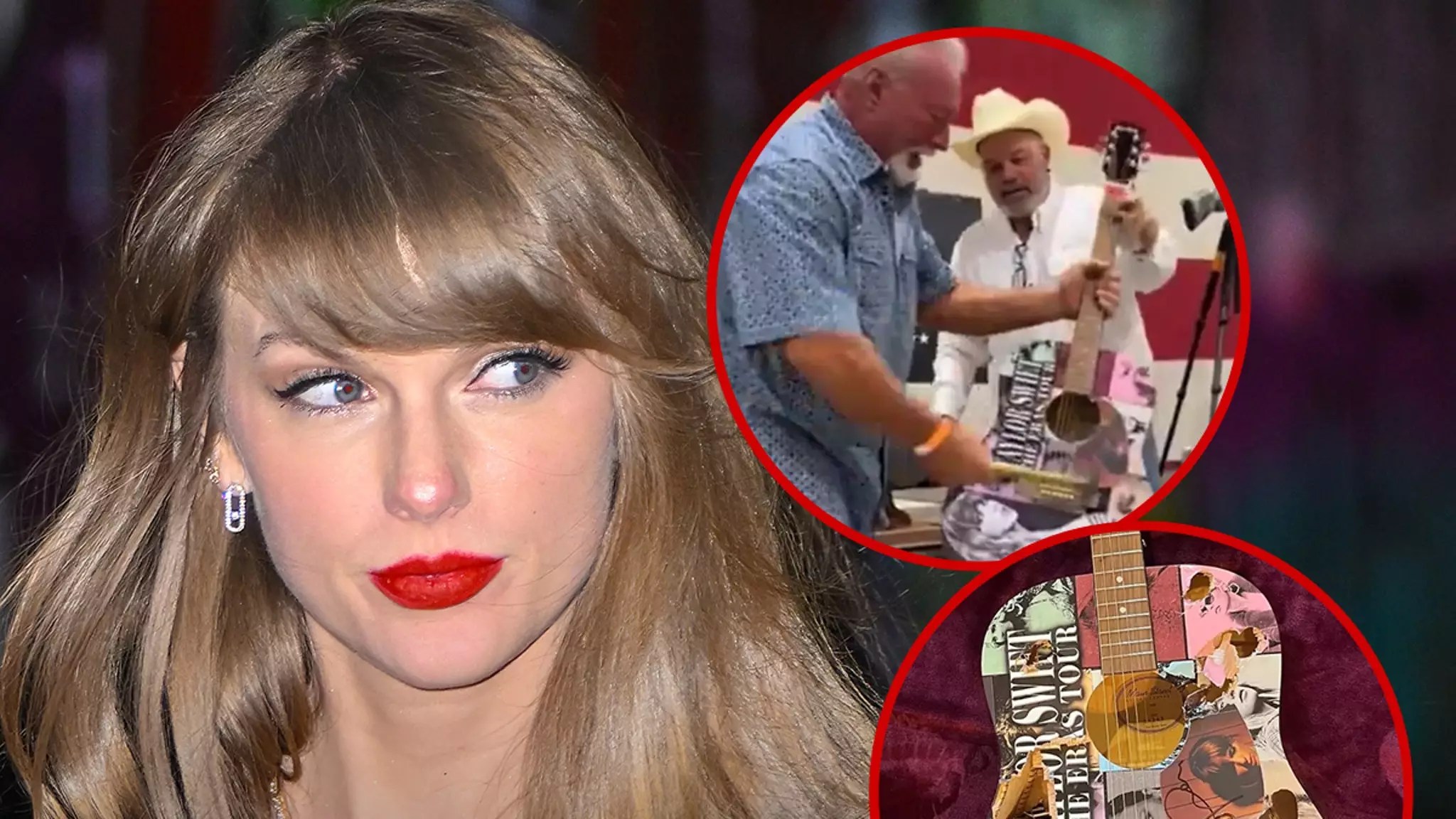In a peculiar episode that recently captured public attention, Gary Estes, a 67-year-old Texan, made headlines for spending a staggering $4,000 to demolish a guitar purportedly signed by pop icon Taylor Swift. At a charity auction event in Waxahachie, Texas, Estes smashed the instrument with a hammer immediately after the purchase, igniting a firestorm of criticism and debate on social media. In the aftermath of the viral video, Estes has defended his actions, framing the destruction as a harmless joke rather than a malicious act.
Estes expressed that he did not intend for the incident to be taken seriously, calling it merely a continuation of a comedic narrative presented by the auctioneer, Craig Meier. According to Estes, the act was meant to evoke laughter rather than outrage, claiming that “there was nothing mean about it.” Meier echoed Estes’s sentiments, describing the auction event as generally filled with humor and light-heartedness, suggesting that the context of the performance mitigated any perceived negativity.
This incident further complicates the cultural conversation surrounding Taylor Swift, a figure who has become increasingly intertwined with political discourse. The guitar’s destruction, amidst an auction designed to raise money for charity, raises significant questions about the intertwining of celebrity culture and political speech.
It was not just a random act of vandalism; the auctioneer noted that the act carried with it a political undertone. Following her endorsement of Vice President Kamala Harris and the subsequent fallout with then-President Donald Trump, the destruction of the guitar may have symbolized a form of protest against celebrity influence in political matters. The backlash against Swift following her outspoken political views cannot be understated. Supporters of Trump have actively voiced their displeasure, mirroring Estes’s actions with similar displays, such as burning Swift merchandise.
This raises a critical discourse regarding the impact of celebrity in contemporary society. Swift’s willingness to use her platform for advocacy has provoked polarized responses, emphasizing the contentious relationship between artists and their fanbases when political issues are introduced.
The incident has ignited a mix of amusement and condemnation online, reflecting broader societal tensions. While some find the act of smashing a guitar humorous, others see it as a troubling commentary on the extremities of political polarization. The viral nature of the event showcases the rapidity with which cultural phenomena can escalate in the digital age, drawing attention to the complexities of humor, politics, and celebrity culture.
As the smashed guitar now makes its way to eBay, the incident serves as a reminder of the fickle nature of fame and the often absurd lengths individuals will go in the name of protest or humor. What remains to be seen is whether this act will have lasting implications for the broader dialogue surrounding celebrities, charity, and political engagement. The saga is far from over, and as public opinion revolves around these figures and their actions, one must consider the fine line between jest and meaningful commentary.







Leave a Reply